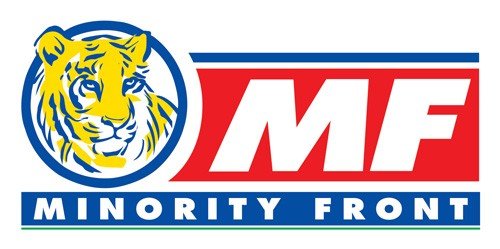“The Indian vote is also important. During election time the Indian community is also targeted by the ruling parties but it is side-lined when it comes to the promises of better employment, business tenders, etc”.
The minority Indian vote is a key swing vote during elections and bigger parties lay down the red carpet, promising Indian voters’ opportunities, understanding Indian survival capabilities and need to succeed. Race – based legislation takes a backseat during campaigns with election promises sweetened with inclusivity, social – cohesion and nation – building rhetoric.
The hard facts we must face is that 26 years into South Africa’s political freedom, Indians find themselves increasingly side lined with badly implemented Affirmative Action (AA), Employment Equity (EE) and Broad Based Black Economic Empowerment (BBBEE) policies. AA crafted in the 2000 White Paper was not reviewed in 2010 by the then deputy president J. Zuma which had a sunset clause of 2014. The ANC bent backwards to accommodate young black African voters obsessed with entitlement mentalities, for the 2014 elections, at the peril of the dwindling South African economy. BBBEE birthed in 2003, remains arguably the greatest strategic issue, challenge, threat and potential opportunity facing businesses currently in South Africa. Hindsight bias is twice the size for people affected by the Employment Equity Act of 1998 which had sound intentions to achieve workplace equity by promoting equal opportunity and fair treatment in employment.
In almost 20 years of existence of these laws, Parliament has amended the EEA in 2018 – 2020 to increase women representation in the private sector and disabled employees into managerial roles overall. BBBEE has been amended in 2013 to clarify interpretation, provide for council members remuneration, promote organs of state and public entities compliance and strengthen monitoring and evaluation. In 2013, the Minority Front debated the opportunistic fast tracking and pre – election timing of this law. In 2007, the MF introduced the first BBBEE debate in the KZN Legislature to bring order to business chaos. This resulted in verification agencies and Advisory Council being set up. However, a cabinet resolution mandated that 60% of all tenders must be BBBEE when the MF motioned the KZN Legislature to move the schools nutrition programme housed in the Health Department to Education in 2008 with the provision for NGO’s to provide healthy meals to learners. The perceived threats of control and ownership touched raw nerves at the time.
However, in 2020, unscrupulous practices have grown out of control, tossing aside the Codes of Good Practice, with absolute public sector institutionalisation of BBBEE. Changing ownership of the economy is only one level of political success if the economy remains the same size or worsens. Similarly, AA has devalued public sector human resource management quality prerequisites to honour Batho Pele principles for service delivery.
The current dilemma South Africa faces is the unintended consequences of race – based legislations, in that BBBEE which is meant to be a pro – poor policy for economic backwardness or previously disadvantaged persons is now a special business vehicle for self – enrichment, corruption and complacency. Likewise, AA with badly implemented EE has been hugely misused to bloat the public sector with cadre deployment by ruling parties, where 80% of departmental budgets goes to salaries and only 20% to service delivery; a flawed use of the 80/20 principle. AA minority quotas goes for the jugular of the Indian community especially in terms of public sector jobs; private sector opportunities and quotas for basic human needs such as housing and education.
So yes, the AA; EE and BBBEE element is stale having lost force and effectiveness which peaked with the fifth term of our democratic parliament.
What is the MF Doing to Help Evolve Society to Ensure That Indians are Not Side-Lined in The Next Election?
In this sixth term of parliament the MF will use its opportunity to introduce a party debate once more on all three race – based, discriminatory legislation which were failed imported policies from the US and Malaysia. AA worked post the civil rights movement in the 1950’s and 60’s to correct past injustices to African Americans and similarly for Broad – based economic plan in post-colonial Malaysia to promote economic transformation during 1970 to 1990. These were aimed at including minorities but had a limited 20 year life – span, like all other limitations that comes with freedom.
In contrast South Africa given its Apartheid past, introduced these legislations for the majority Black African citizens, however the wisdom of not adhering to time – frames have now come back to bite laudable NDP programmes like social cohesion and nation building, with reverse discrimination and the need for socio – economic justice 26 years on for minorities.
In the spirit of NDP 2030 with the goal of South Africa becoming a capable state, the MF will call for the scrapping of AA and BBBEE, along with fair implementation of EE based on merit, so that we evolve the thinking of all South Africans’ to embrace Indian capabilities by adopting open opportunities, which are non – racial and non – sexist. This will ensure that Indians are not side lined in the 2024 parliamentary elections and provides a golden opportunity for ruling parties to honour election promises to the Indian community.
Hon. Shameen Thakur – Rajbansi MPL: KZN Legislature Leader of the Minority Front
Politiek Magazine
